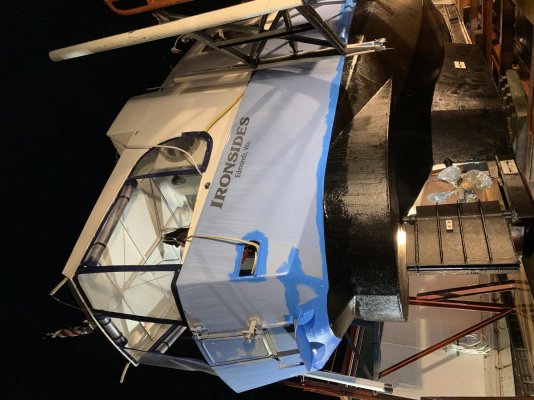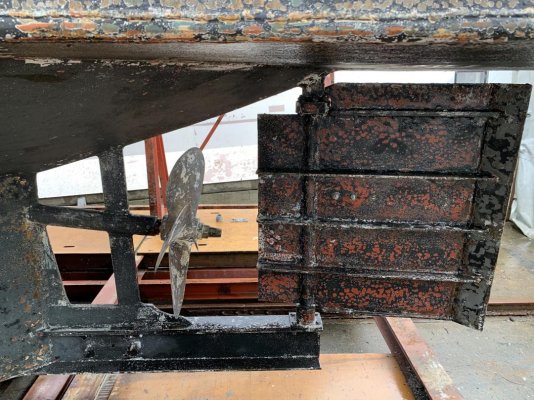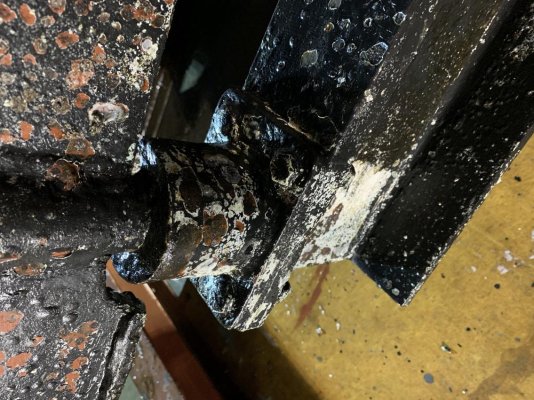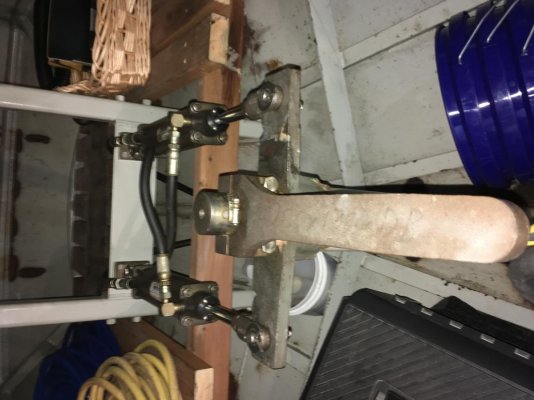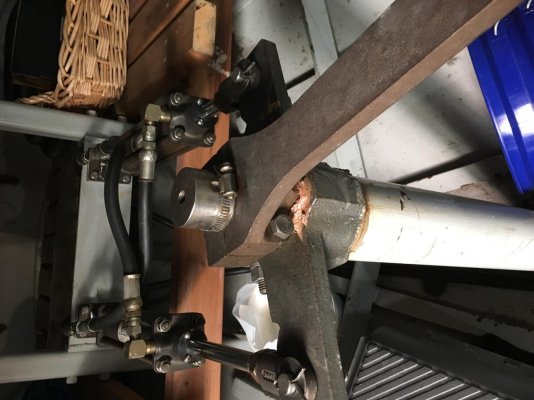By the way, what makes you feel you need bearing replacements?
Pete
Thanks for the encouraging words.
My goal with all these questions is to be prepared as much as possible. The haul out needs to be reserved and it is not always possible to extend the stay on the rail.
I suspect that the rudder can be removed on the first day and inspected. If there is bearing available, all good. If not, it would require another haul out, till the proper one is located and purchased. I also understand the importance of bringing in a professional, who knows about this area. I am working on it.
I don't know, if the bearings are good or bad. It was suggested here on the forum by knowledgable people, when I complained that my steering is very stiff. The boat has hydraulic steering, so it should move smoothly. It was suggested to test the rudder by removing the hydraulic cylinders and try to move the rudder by hand. I did the test and I could not move it at all. The upper housing of the rudder shaft is full with grease. I did not open it, but I could see it. So, the culprit must be something below waterline. I suspect, there is nothing else there, but the bearings. This is the reason, why I want to look into it and see, if it needs replacement, or just lubrication?
My steering requires 8 3/4 turns end to end. That is a lot of turning, when I try docking and need quick rudder movements. I don't have a rudder indicator, so many times, it is hard to locate the position of the rudder, because I keep turning the wheel. I also want it to run smooth and easy.
I plan to install an autopilot with a rudder indicator. It would be nice to have a rudder assembly, which runs easy and fast.

